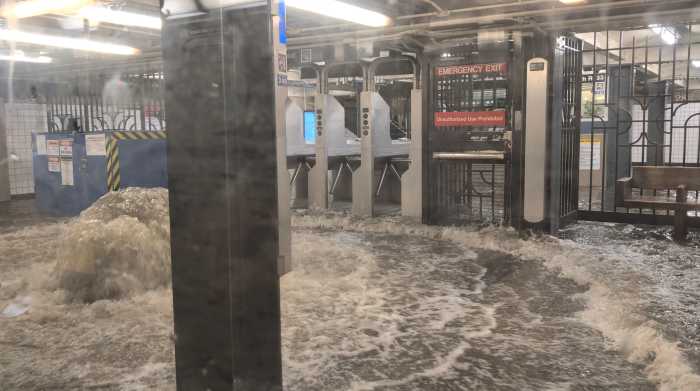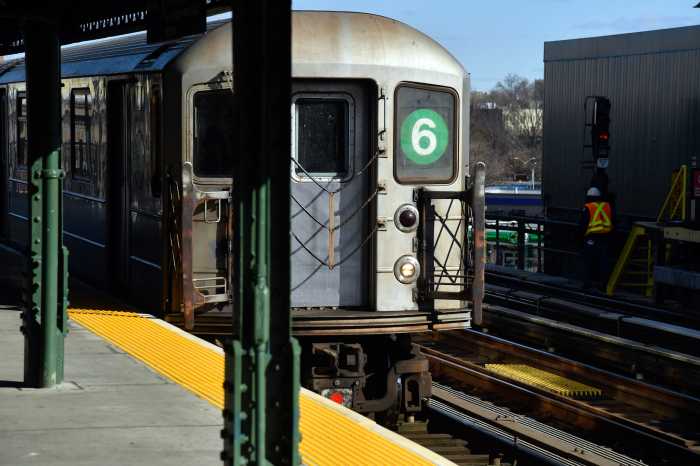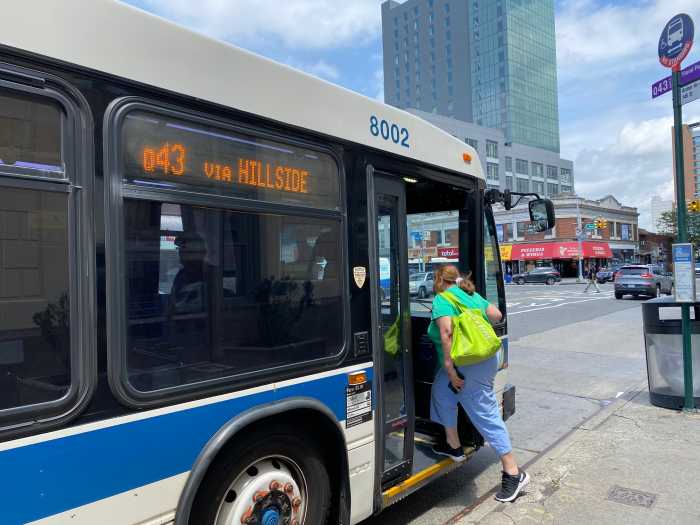
Gov. Andrew M. Cuomo called the MTA a “management failure” on Sunday, following a second allegation of damaged worker time clock equipment.
Cuomo, who has effectively controlled the state-run transportation authority since becoming governor in 2011, said there is monetary waste and “basic fraud” at the MTA that its board must address.
“It’s clear that the MTA has been a management failure,” Cuomo said Sunday during the Puerto Rican Day Parade. “And the people of New York have spent more money than ever before. Fares are up, tolls are up; we just spent $800 million on the Subway Action Plan. And the MTA still fails to have basic management systems in place.”
MTA Inspector General Carolyn Pokorny announced Saturday that she has ordered another investigation after learning of a second incident of a timekeeping clock damaged in apparent vandalism at the MTA 38th Street Train Yard & Facility in Brooklyn. On June 5, workers discovered that a newly installed Ethernet wire had been cut at Jamaica Station before timekeeping devices could be set up.
The MTA recently started installing new time clocks at all employee facilities, a step meant to address alarmingly high overtime rates among some employees. The rates were first published in an April report by the nonprofit Empire Center for Public Policy.
Cuomo’s comments come amid MTA negotiations with the union. His statement also conflicts with authority data showing the subway system’s gradual progress.
The governor has for months chastised the MTA, even as its leadership touts statistics showing that the subways are slowly bouncing back from abysmal service during 2017. Weekday subway on-time performance, which measures the percentage of trains that reach their terminals within five minutes of their schedule, reached 79.8 percent in April. That is the highest reported for that statistic in five years.
MTA officials have credited subway performance improvements to the Subway Action Plan, which aims to stabilize service. The plan also endeavored to cut costs through a hiring freeze and to correct managerial oversights, such as the failure to identify and address faulty signal equipment.
Cuomo seemed to put the onus on the 17-member MTA board to more swiftly address such issues. The governor appoints all board members, who must be confirmed by the State Senate. Cuomo personally recommends six of those officials, a plurality of the board. Mayor Bill de Blasio has the power to nominate four board members.
“I’m going to put new members on the MTA board who have real expertise in management and finances. The mayor of New York, I would ask him to do the same,” Cuomo said. “Let’s put professionals on that MTA board because New Yorkers are paying plenty. And they deserve their money’s worth, and they’re not getting it.”
Last week, de Blasio announced two nominees to the board: Bob Linn, the city’s former Office of Labor Relations commissioner, as well as Dan Zarrilli, the mayor’s chief climate policy adviser.




































